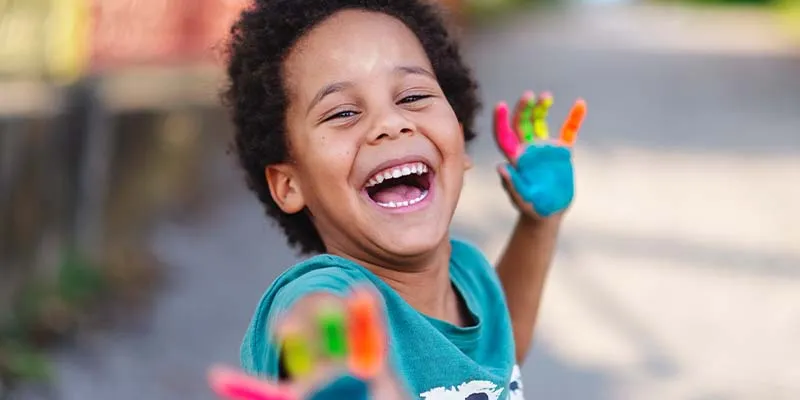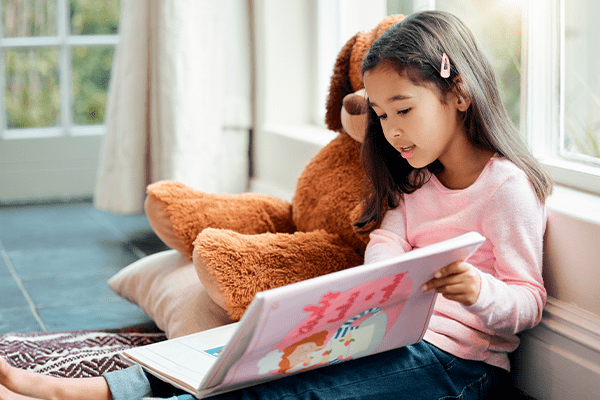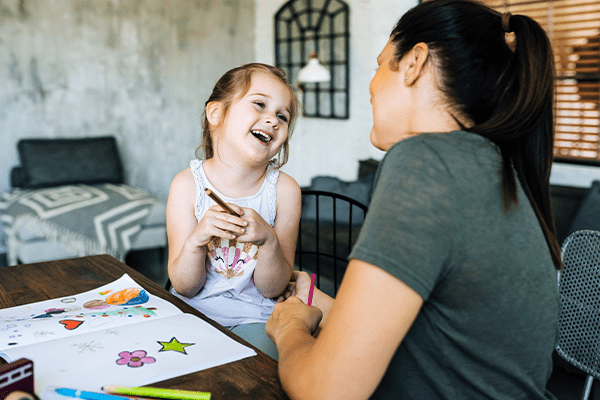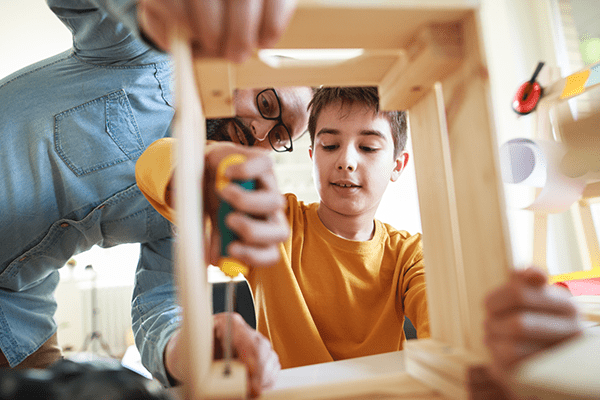10 Ways to Foster Creativity in Your Kids
10 ideas parents can try to help their kids develop creative thinking skills.
- 3 min read
- child development
- education

Facilitating creativity in your kids can benefit them in numerous ways. Creativity supports mental growth in relation to things like problem-solving, sensory perception, verbal skills, balance, equality, hand-eye coordination, and more. Creativity also helps children develop divergent thinking, which encourages reflection, wonder, and curiosity.
As a parent, you can help foster creativity in your kids
Parents are challenged with even more hindrances to helping their kids develop creativity these days. With screen time rising among children and teens, it’s become increasingly difficult to get your kids into a creative space. If you and your co-parent are looking for ways to foster creativity in your children, try these 10 ideas:
1. Emphasize process over product
You and your co-parent can help foster creativity in your kids by emphasizing process over product. This means focusing your attention and praise on the thought process or steps your child takes to attain a certain idea, achievement, or creation rather than focusing on the outcome itself.

2. Encourage reading
Among a variety of developmental skills, reading improves imagination and creativity in kids. You and your co-parent can encourage your children to set aside time for reading each day or help them set a goal to read a certain number of books each month or year.
3. Help them question things
You and your co-parent can help your child develop creative thinking by encouraging them to wonder aloud. Let them ask as many questions as they want and ask them questions about things they may or may not have the answer to.
4. Don’t squash their ideas
Children come up with a lot of crazy and silly ideas, and that’s okay! You and your co-parent should avoid telling your kids that an idea is “bad” or “not good”, unless it’s truly detrimental to their well-being or someone else’s.
5. Reduce meaningless screen time
You and your co-parent should set limits on screen time that isn’t related to school or other educational content. Allowing your child’s mind to idle without proactive thought for large chunks of time can be a major creativity roadblock.

6. Share thoughts & reflections
Walking your child through your thought process or reflections can help them understand and share their own. You and your co-parent can help your child foster creativity by helping them realize that thinking and reflecting is a process that takes work for everyone, not just kids.
7. Avoid labels
Many times, children and adults alike are classified as either “creative” or “uncreative”. You and your co-parent should avoid labeling your kids as such, as statements like this tend to stick with kids. Even if you don’t necessarily call your children “creative” or “uncreative” in those exact words, you need to be mindful of the things you say that could have similar connotations.
8. Cultivate their passions
Sometimes, parents push their kids to participate in certain activities or hobbies at an early age. Instead, you and your co-parent should first see what interests your child naturally develops and cultivate those passions however you can. Your kids are more likely to fully invest their mind in activities or hobbies that they truly enjoy, facilitating creative thinking.
9. Provide a judgment-free space
You and your co-parent should encourage your children to just be themselves. Allowing kids to learn, play, and grow in a judgment-free space can do wonders for their development, including their creativity.

10. Show your creative side
Don’t be afraid to get creative with your kids! Children learn by example, so you and your co-parent can help foster creativity in your kids by displaying your own creativity. This doesn’t mean you have to be artsy or a musician. Creativity comes through in so many ways, from how you think and communicate to how you have fun, teach, cook, learn, and collaborate.
Encouraging your kids to be creative is beneficial
Numerous studies have shown the developmental values of creativity for children, including reduced stress levels, high emotional intelligence, improved social skills, and the ability to practice original thought. If you or your co-parent are looking for additional resources related to child development, check out these articles.